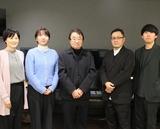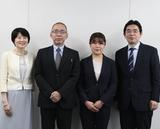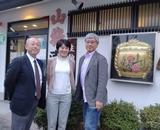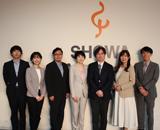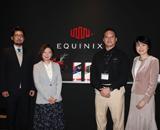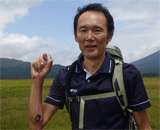February 2015
Accenture's CMI Yoshimitsu Kaji: The Future of Japan from the Perspective of a Businessman/Government Official
Supporting the Training of Staff Capable of Easily Solving International Issues
Ohsato: You often say that "we have to keep asking ourselves how we can be of use to society," don't you?
Kaji: Exactly. Personally, I was very lucky to encounter Kellogg's education. That allowed me to broaden the scope of my career, and helped me learn many skills, so I would like to give back to society. This is also because I deeply feel that people can change based on the education they receive.
Ohsato: Can you give us an example in a particular field or method?
Kaji: The field I am most interested in at the moment is education. For example, currently people are facing world-scale problems such as climate change and energy mix, but we tend to act as separate entities, as nations. And when I worked for the government I felt that national borders represent a hindrance to solving these types of problems.
Ohsato: That's true. Despite it being a problem that affects humanity as a whole, it's difficult to tackle this issue all together.
Kaji: Precisely. Still, borders might seem thinner to younger generation who always lived in an environment with access to the Internet. They might be able to easily solve some issues that seem complex to us presently. So as for education in the future, I don't think it should revolve around me teaching them what we know, instead it should be about providing support to the new generations so that they can develop new abilities.
Ohsato: What a wonderful idea! This might bring a problem of communication between different people, though.
Kaji: I agree with you. Like gender and height, all kinds of differences might end up being accepted as nothing more than individual traits.
Ohsato: Language can be a real problem too.
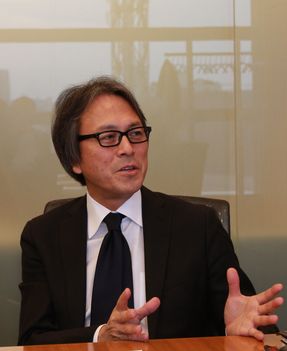
Kaji: Yes, quite a big problem indeed. In Japan, when isolationism came to a stop during the Meiji period (1868-1912), massive quantities of excellent books were translated into Japanese.
Ohsato: Thanks to which Japanese people could receive an education in Japanese.
Kaji: Yes, we often say that Japanese people can't speak English, and that's why our ancestors translated many books: so that we could receive a Western education in Japanese.
Ohsato: Incidentally, in your opinion, what is the importance of translation in business?
Kaji: In translation, it is primordial to capture the scope of words, and accurately convey the author's intention. For example, the word "compliance" is often understood in its legal meaning ("hōrei junshu"), but it also encompasses the idea of "complying with." Social acceptance of being in line with something is "compliance." Therefore, the Japanese translation "hōrei junshu" doesn't mean the same thing.
Our work in marketing at Accenture involves selling ideas, so translation that properly understands that concept is crucial. Having a partner who properly understands that is reassuring. Arc Communications is a partner that produces high quality work on the Harvard Business Review, so I hope we can continue working together for a long time.
Ohsato: Thank you very much, I sincerely hope so too.
Before we close this segment, can you tell us more about one of your favorite subjects lately, Japan's value in the world?
Kaji: What I think recently is that the values of Japan, in other words "to cherish the harmony among people," could be useful for the world's new governance and system. The Japan of today takes in a multitude of influences. It's a hint for a type of future of mankind. Teaching Japan's know-how or sense of values, in other words its capacity to compile and absorb, could be a chance for us to grow. Therefore, I think that Japan's role is growing in the world.
Ohsato: These are very encouraging words. Thank you for this valuable chat today.
Feature Interview Index

